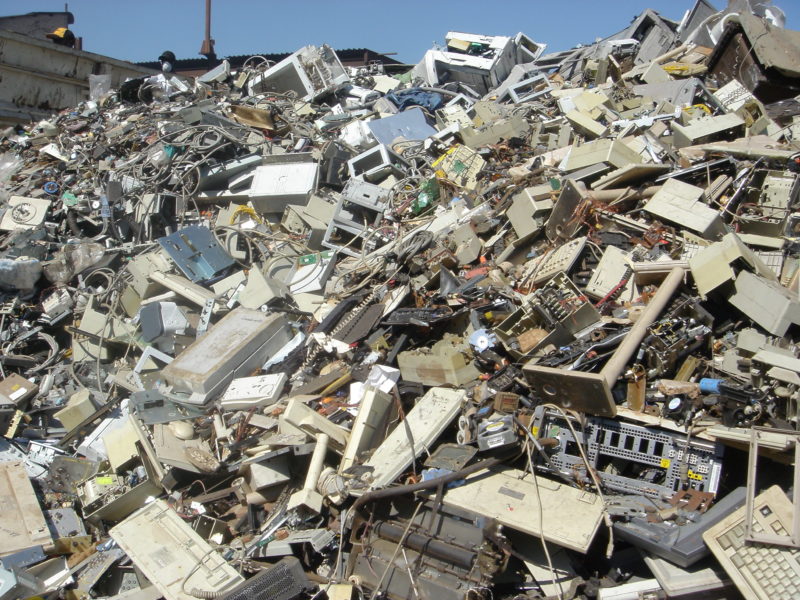The Lagos State Government says it will soon institute regulation on “waste to wealth” toward ensuring proper electronic waste (e-waste) management.

Commissioner for Environment, Babatunde Durosinmi-Etti, told the News Agency of Nigeria (NAN) on Saturday, May 26, 2018 in Lagos that the regulation would ensure that e-wastes were properly disposed.
Durosinmi-Etti said that the Lagos State Ministry of the Environment was in contact with businesses at the Ikeja Computer Village to ensure proper management of large quantity of e-waste generated in the market.
According to him, the ministry would engage in advocacy to make sure that the citizens are well educated to enable them abide by the regulation.
“If e-waste is properly handled, it will create jobs for young entrepreneurs; there are some value chains in the process.
“E-waste management and job creation are in consonant with the plans and programmes of the ministry.
“We intend to start separating our waste before they get to the landfills, expanding on wealth creation outlet from waste created.
“At the end of the day, we make sure that these wastes are recycled and turned into other things that can be used,” he said.
Speaking earlier at E-Terra Technologies Ltd E-Waste Recycling Exposition 2018, the commissioner said that digital communication had helped foster innovation and transformed the way people live, conduct business and govern.
He, however, said that the tools of the transformation had resulted in an almost uncontrollable volume of electronic waste.
According to him, e-waste is considered a challenge that is not particular to Nigeria or the African continent alone, but indeed the whole world.
“Electronic Waste, the tons of out-of-use, obsolete electrical equipment thrown away each year, affect human health and has an increasing negative effect on the environment.
“According to the Global E-Waste Monitor, Recycling Today and other notable organisations, it is estimated that yearly 50 million metric tons of e-waste is produced globally, of which only 20 per cent is being recycled.
“Consequently, disposal of E-Waste in an eco-friendly manner has become an emerging global environmental and public health issue.
“We are aware that Africa, and to be specific West Africa, is the preferred destination or graveyard for most of these wastes generated in developed countries.
“Our counterparts in East and Southern Africa have implemented measures to check the indiscriminate dumping of e-waste from the West and we in Nigeria must begin to do the same,” he said.
Prof. Oladele Osibanjo, President of the Waste Management Society of Nigeria (WAMASON), said that apart from climate change, e-waste was one of the major environmental challenges of the 21st century.
Osibanjo said e-waste had therefore, became a global crisis not only from the quantity, but also from various hazardous contents such as heavy metals and endocrine disrupting substances.
The environmentalist said that e-waste was a paradox, as it was both a problem and an opportunity.
According to him, e-waste contained valuable ferrous (iron), non-ferrous (copper), precious (gold and silver) and strategic metals (indium, gallium) that are scarce.
“Many of these may be lost if e-waste is improperly processed.
“Nigeria and Africa should take full advantage of the economic and entrepreneurship potentials of e-waste in an environmentally sustainable manner.
“Regulations and guidelines are needed for collection, dismantling and recycling of e-waste for sustainability.
“Government should encourage private sector in the e-waste recycling industry, as this would take away e-waste from dumpsites, creating green jobs and alleviating poverty,” he said.
By Florence Onuegbu
